If you want to rank higher on Google and improve your SEO performance, these are the 12 essential SEO KPIs you should be tracking.
When it comes to SEO, there are a lot of different key performance indicators (KPIs) that you will want to track on an ongoing basis. These metrics can be used as a benchmark for measuring your performance and analysing the effectiveness of your SEO strategy. You might discover that certain aspects of your strategy need to be tweaked in order to help you rank higher on Google.
Google is consistently refining its search algorithms, which means that SEO strategies need to be updated on a regular basis in order to stay effective. Tracking your SEO KPIs will help you understand the performance of each part of your strategy so that you can make adjustments where necessary and improve your rankings over time.
Here are some 12 essential SEO KPIs you should be tracking to help you rank higher on Google.
1. Domain Rating (DR)
Domain Rating (DR), also known as Domain Authority (DA), is a metric used to measure the online authority of a website.
The score ranges from 1 to 100 and is calculated using a number of factors, including the number of links pointing to the site, the quality of those links, and how relevant the websites linking to your site are.
A high DR score means that your website is authoritative and likely to rank higher in search engine results pages (SERPs). You can track your DR using SEO analysis tools like Ahrefs.
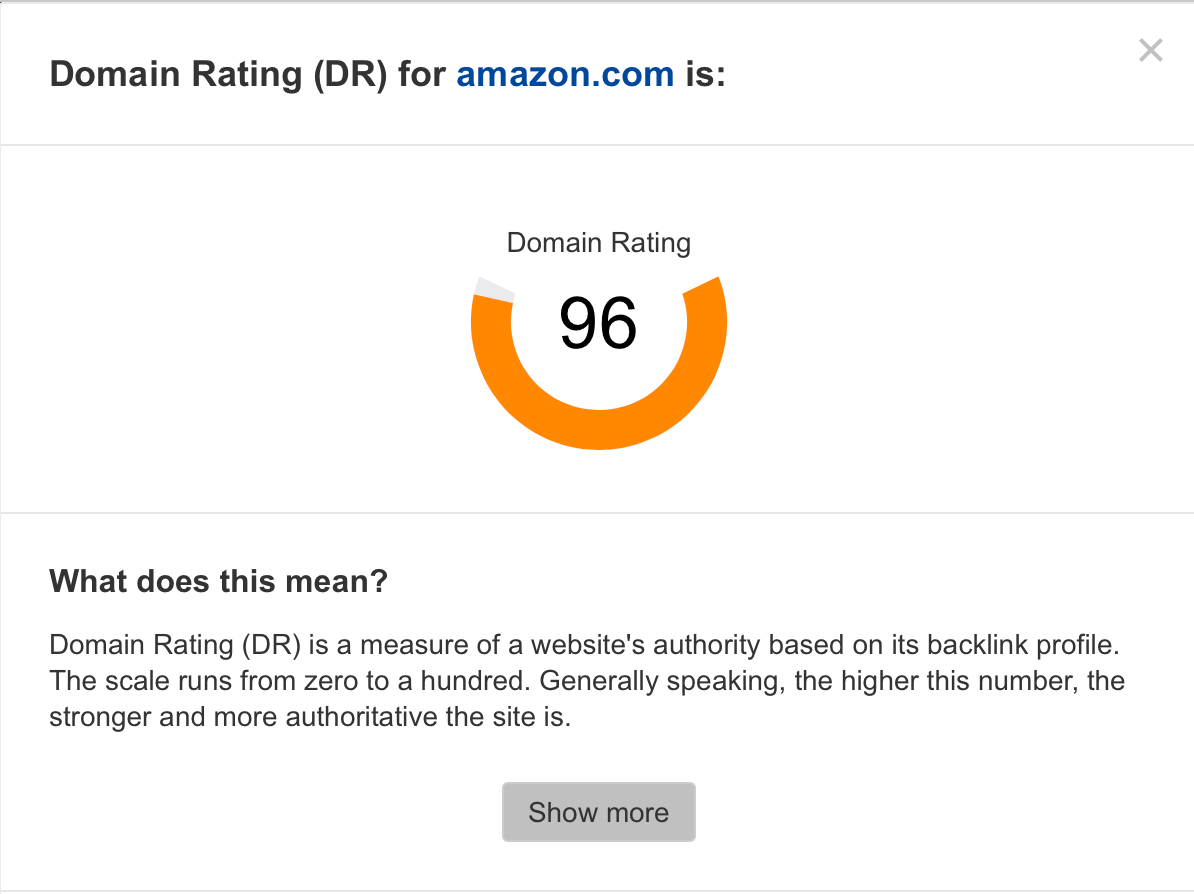
2. URL Rating (UR)
URL Rating (UR), also known as Page Authority (PA), is a metric similar to domain rating, but which measures the authority of a specific page rather than the entire website.
It is calculated in a similar way, ranging from 1 to 100 and using factors such as the number of links and quality of those links pointing to the specific page. A high UR score means that the page is likely to rank higher in SERPs than pages with a low UR score. You can track your UR score using SEO analysis tools like Moz or Ahrefs.

3. Organic Traffic
Traffic is a measure of how many people are visiting your website. This can be measured in two ways — total website traffic or organic traffic from search engines.
Measuring total website traffic will give you a general idea of how popular your website is, but it’s a measure of every traffic source including direct, social media, paid advertising and referral traffic.
On the other hand, measuring organic traffic from search engines will give you an idea of how well your SEO strategy is working. The higher your pages rank in SERPs, the more organic traffic you can expect.
You can use free tools like Google Analytics to track your organic search traffic.
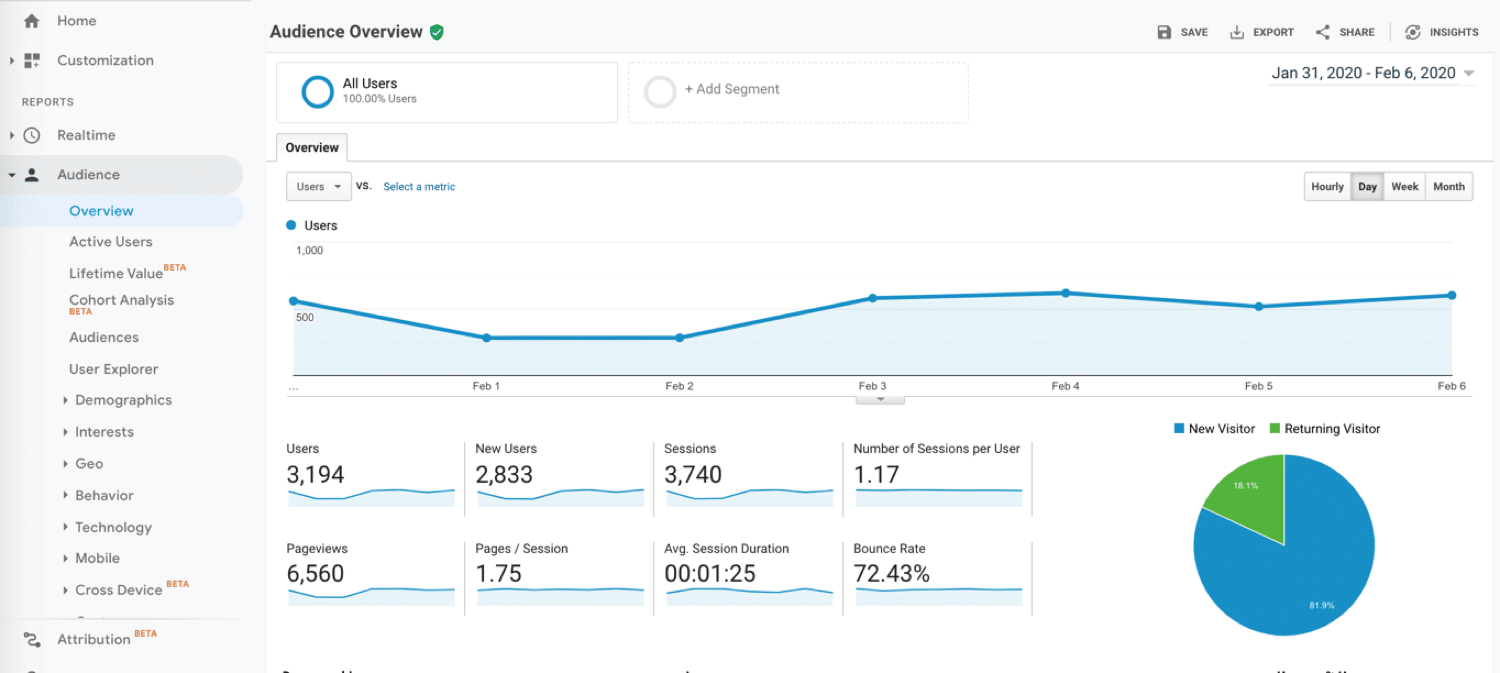
4. Bounce Rate
Bounce rate is a metric that measures the percentage of visitors who leave your website after viewing only one page.
A high bounce rate means that people are not finding what they are looking for on your website and are therefore not sticking around to explore further. Low bounce rates indicate that people are finding what they are looking for on your website and are staying longer to browse around.
Good bounce rate would be in the range of 25-40% and average bounce rate would be in the 41-55% bounce rate — anything above that would be considered on the high side.
Some of the most common reasons for high bounce rate include slow loading speed, lack of mobile-friendliness and content that doesn’t match the searcher intent.
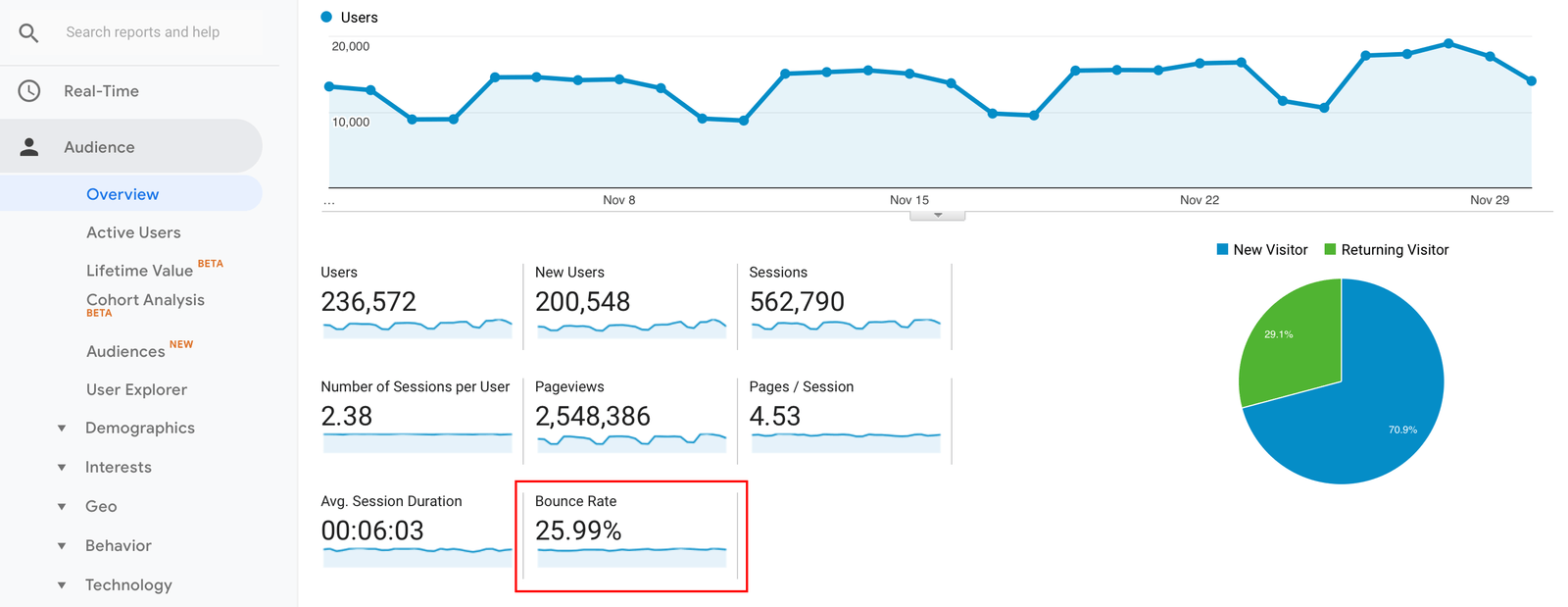
5. Conversion Rate
The conversion rate is a metric that measures the percentage of visitors who take a desired action, such as filling out a contact form or buying a product.
A high conversion rate means that your website is effective in converting visitors into customers. Low conversion rates could indicate that you need to work on improving your website’s usability and attractiveness of your content and offers to potential customers.
The reason why it’s one of the most important SEO KPIs is that if you’re getting a lot of organic traffic, but you’re not converting these visitors into customers you might have got the search intent wrong. In that case you will need to conduct intent analysis and review your marketing funnel.
Conversion rates vary from industry to industry, but generally good conversion rate is considered to be between 2-5% and would look something like this:
| Bottom | Middle | Top | |
| Ecommerce | 1.8% | 3.7% | 6.2% |
| Legal | 1% | 4.1% | 6.5% |
| B2B | 2.2% | 4.3% | 11.7% |
| Finance | 5% | 11.2% | 24.5% |
According to the ADI Consumer Electronics Report 2020 the retail sector has an average conversion rate of 3%, however it’s highly dependant on competition and demand. Take a look at this breakdown below:
| Industry | Conversion Rate |
| Consumer Electronics | 1.4% |
| DIY & Tools | 1.7% |
| Automotive | 2.2% |
| Home Furnishing and Decor | 2.3% |
| Major Chains | 2.3% |
| Jewellery and Cosmetics | 2.9% |
| Sports | 3.1% |
| Others | 3.4% |
| Clothing and Footwear | 4.2% |
| Health and Medicine | 4.6% |
| Gifts | 4.9% |
6. Backlinks
Backlinks are links from other websites pointing back to your own website. Your backlink profile is the cornerstones of organic search and one of the most important SEO KPIs.
The number, quality and relevance of those backlinks are all essential SEO KPIs to track. Low-quality links can have a negative impact on your SEO strategy, so it is worth checking the quality of any backlinks you receive and disavowing or reporting those that are not beneficial.
In order to build backlinks, you need to create valuable content that is worth linking to and conduct a link building campaign. Websites with more high quality backlinks can expect to rank higher on Google and see a better SEO performance overall.
7. Average Session Duration
Average Session Duration refers to time spent on a website by a visitor. It indicates the level of engagement visitors have with your content — whether they are finding what they are looking for and staying on the site, or whether they are leaving quickly.
This SEO KPI can be used as a benchmark to compare alongside Bounce Rate and Pages Per Session to see which pages of your website people like best.
Similar to Bounce Rate, if the time spent on site is low you might need to reevaluate if your page is meeting the searcher intent. A good Average Session Duration is considered to be 90 seconds to 3 minutes, but it will vary for different industries and sectors.
8. Pages Per Session
The Pages Per Session metric measures the average number of pages viewed by a visitor during their visit to your website.
This SEO KPI is an indication of how interested visitors are in your content and it can be used as a benchmark to compare alongside your Bounce Rate and Average Session Duration.
If the pages per session metric is low, you might need to engage your visitors more by including more Call-To-Action (CTA) buttons or using internal links to help visitors explore your website more. A good average number of Pages Per Session is considered to be at least 2.
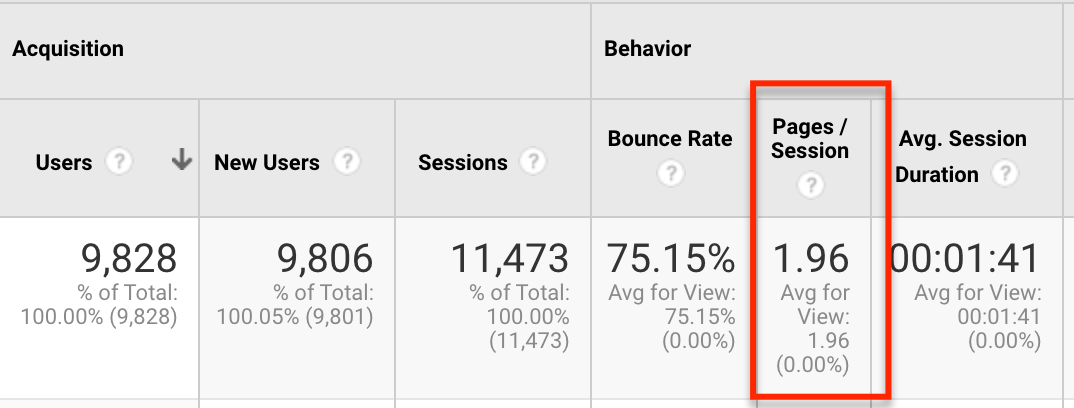
9. Your Keywords
SEO is all about keywords. Your SEO strategy should be focused on achieving high rankings for specific keyword phrases, so it’s important to know which pages are performing best in relation to your target keywords.
The more keywords you rank for, the more organic traffic you can expect to get. This makes it one of the most important SEO KPIs as your keyword rank will change over time.
To track your keyword rankings, you can use a tool such as Google Search Console or SEMrush to track your keyword positions.
10. Loading Speed
Loading speed is an important SEO metric that is often overlooked. A slow-loading website can have a negative impact on SEO, as visitors are likely to leave before the page has loaded completely.
Google has also stated that page loading speed is a ranking factor. Optimising your website for loading speed can be a difficult task, but it is worth the effort as it can result in increased traffic and improved SEO performance.
You can use tools like Google’s PageSpeed Insights or GTMetrix to get a better understanding of how you can improve your website loading speed.
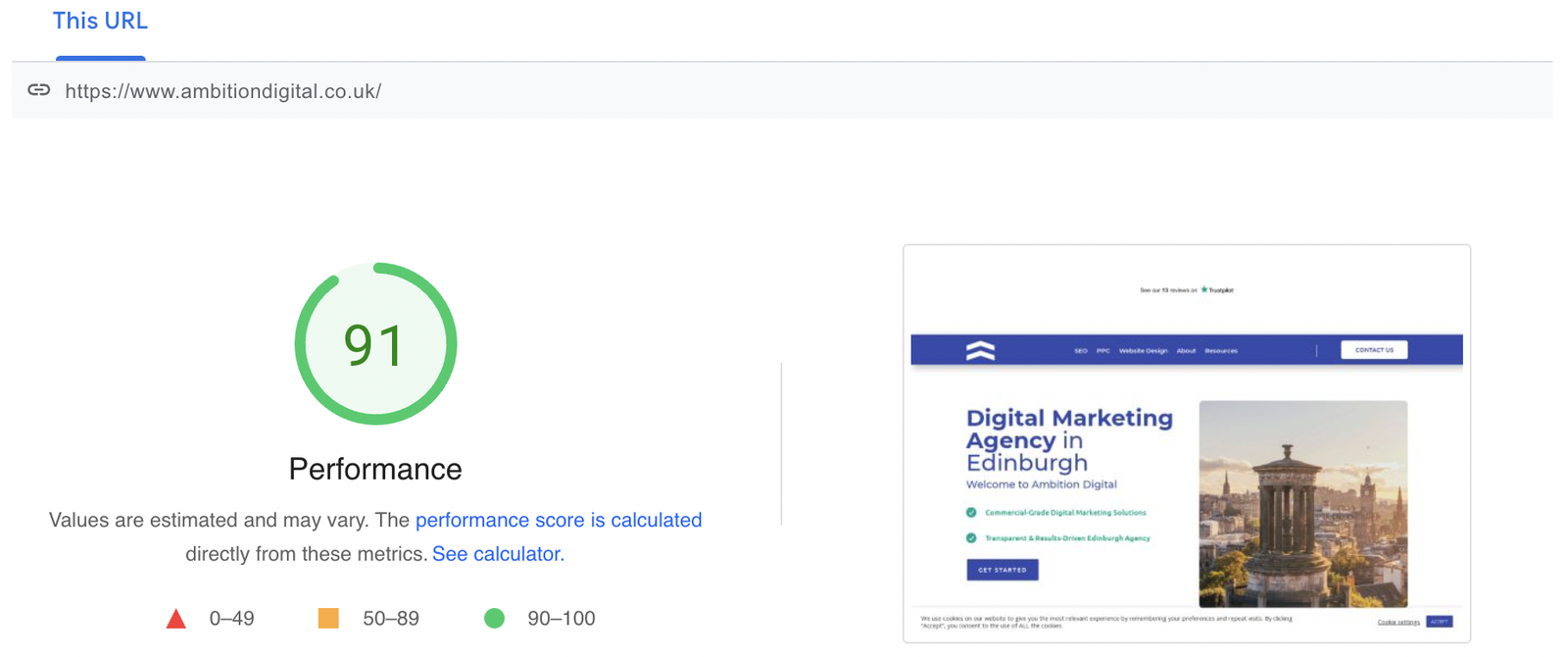
11. Posting Frequency
Creating content that people want to read is an important part of your SEO content strategy, but your posting frequency could be equally as important.
You need to create quality posts around a specific keyword phrase or topics and then post frequently so Google crawls your site regularly for fresh new content.
If your competitors post new content more often than you, their SEO KPIs such as keyword ranking and backlinks could be higher than yours.
12. Brand Mentions
Brand mentions refer to any time your brand or business name is mentioned online.
It’s one of the most important SEO KPIs because without conversations around your brand, a sudden increase in backlinks will look unnatural and Google could penalise your SEO performance.
You can use a tool such as Mention or Google Alerts to help you keep track of brand mentions and conversations. But it’s also important that you reply to any comments made about your business on social media channels and manage your brand reputation.
In Conclusion
Tracking SEO KPIs is one of the best ways to measure SEO performance and see how well you are doing. By tracking a number of different SEO KPIs together, it is possible to get an in-depth view into the effectiveness of your SEO strategy that goes beyond just looking at rankings alone.
By keeping track of these 12 SEO KPIs you can ensure that your SEO strategy is on track and make sure you rank higher on Google over time. Make sure to use tools like Google Analytics, PageSpeed Insights and others to help track your SEO performance and make your processes more efficient.
If you need help with your SEO contact us today. Ambition Digital is a commercial-grade SEO agency in Edinburgh, UK. We can make your business more visible in search engines and outrank your competition by focusing our efforts on applying multiple, proven SEO strategies at once to get your website the highest rank in the quickest time possible.








